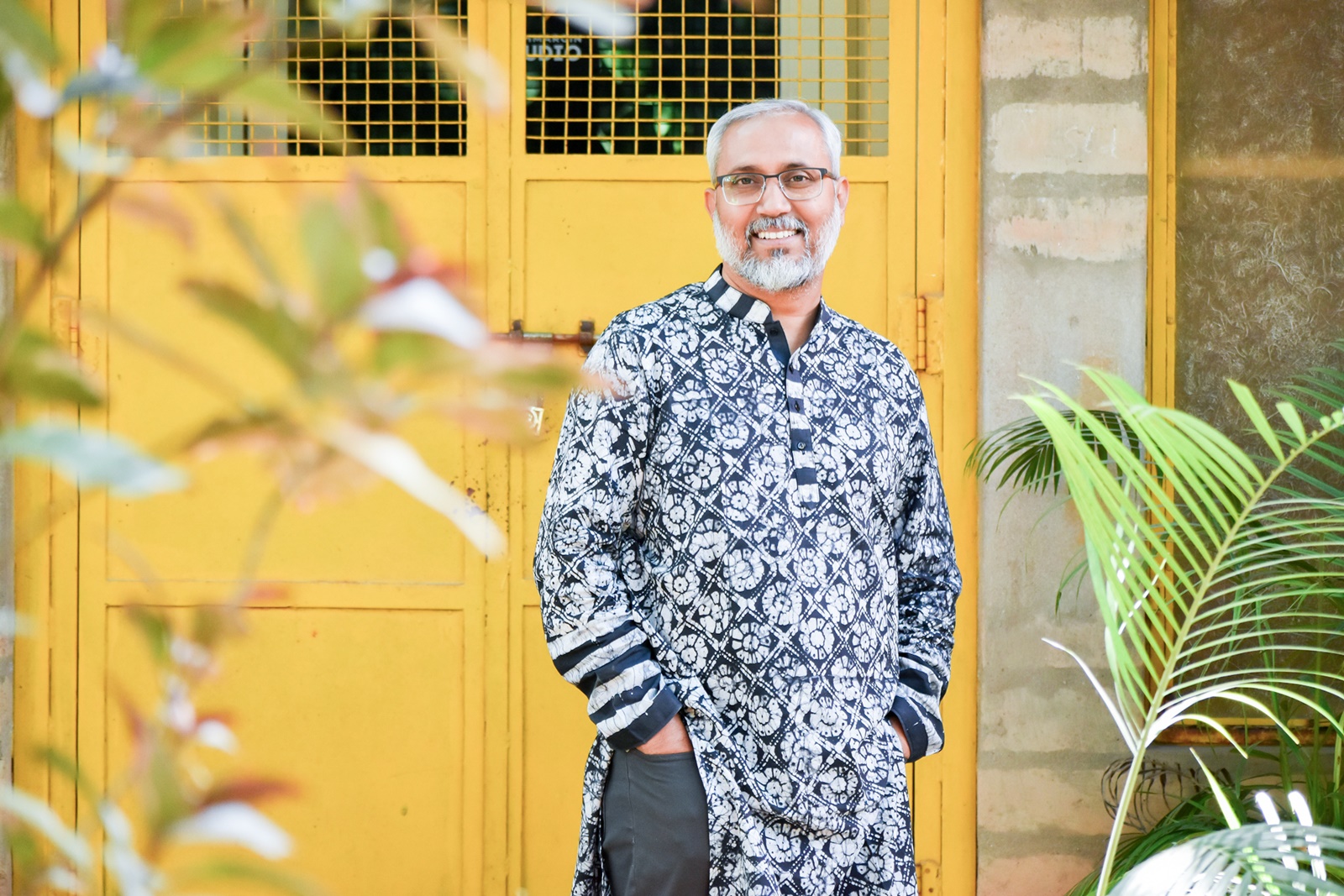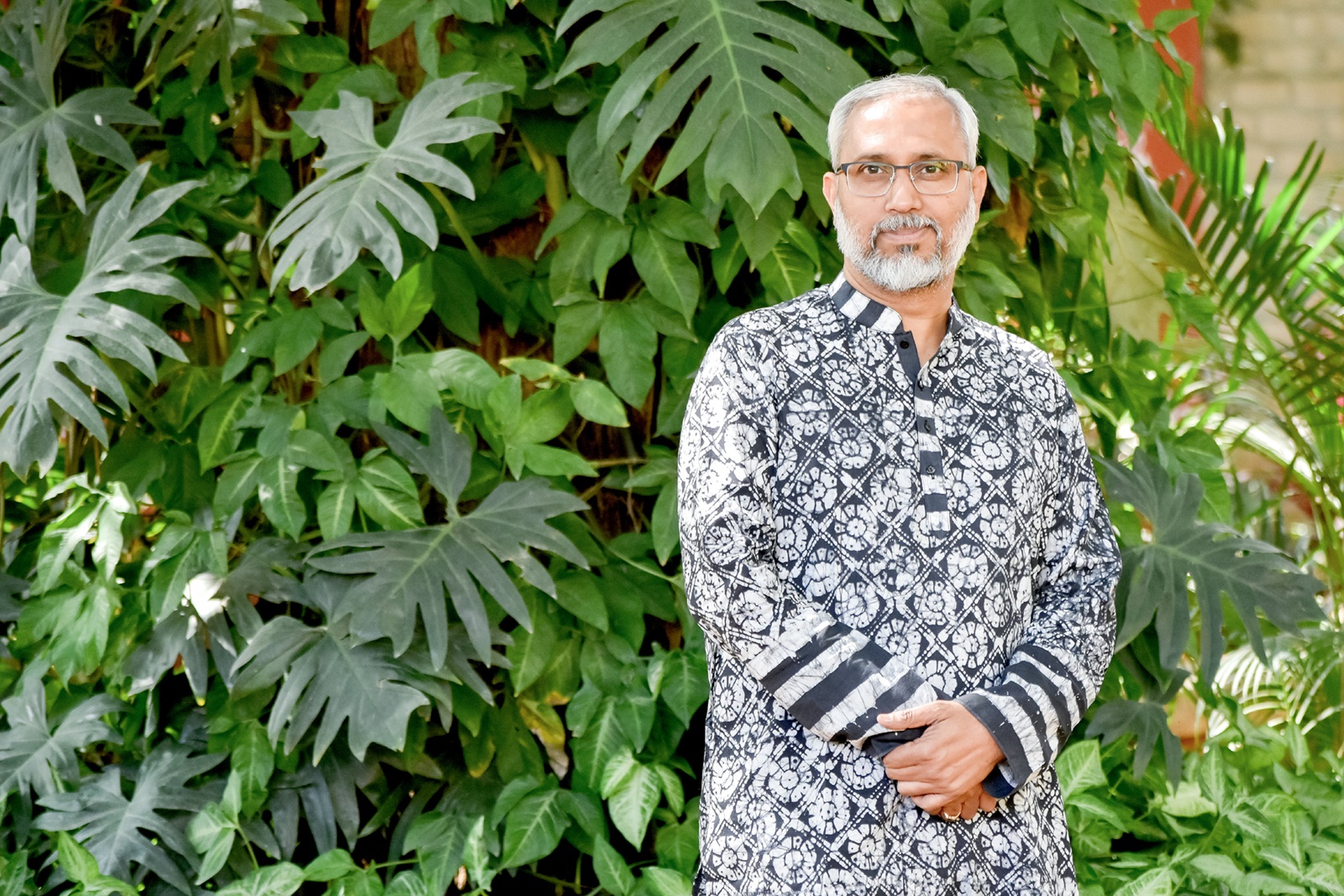Suresh K Krishna is a social entrepreneur, who is involved with nonprofits working to improve water availability, sanitation, and financial literacy in India.
The MD and CEO of Yunus Social Business Fund Bengaluru and co-founder and partner of Yunus Social Business India Initiatives, Suresh Krishna was instrumental in developing Grameen Koota into a large socially responsible microfinance institute, having its outreach in five Indian states.
He spoke to indianexpress.com on how tech is helping the impact investment sector track its performance, the democratisation of tech and its impact, Edited excerpts:
Venkatesh Kannaiah: How has tech impacted the impact investment sector?
Suresh K Krishna: As impact investors, we have been able to streamline our internal processes through technology. Impact measurement and management has become better. Traditional methods of measuring social and environmental impact were cumbersome and time-consuming.
Thanks to technology, we now also employ lean data collection approaches, utilising smartphones, IVRS, messages and calls to gather and analyse real-time data. This enables us to assess the effectiveness of our investments, helping us to make timely decisions, adjust strategies, and optimise our portfolios for maximum social and financial returns.


Venkatesh Kannaiah: Is technology and impact through technology a core part of impact investing at Yunus?
Suresh K Krishna: As investors, integrating tech into our investment thesis is not just advantageous, it has become imperative, especially with the growth of the digital public infrastructure in India.
You must understand that the percentage of our population with smartphones has surged and the cost of data has plummeted. This is throwing up new opportunities to tap the untapped markets, and have greater impact.
This democratisation of tech has made it easier for social businesses to address the needs of the bottom-of-the-pyramid population. Our investment strategy involves supporting companies that leverage tech to provide services, products, or employment opportunities for the marginalised communities.
The integration of tech in impact investing allows to create meaningful impact at scale more effectively. Therefore, while the degree of emphasis varies, technology remains a core and integral element.
When we mention tech, we are not referring to digital or software-led solutions. Our portfolio includes social businesses using deep tech and cutting edge scientific ways to solve social problems.

Venkatesh Kannaiah: Can you tell us about a few of Yunus investments in India which created impact using tech.
Suresh K Krishna: S4S Technologies is a food preservation company that is building India’s full stack food processing platform. It also uses innovative solar drying technology to increase the shelf life of farm produce, reduce post-harvest farm losses and increase farm income.
Carbon Masters is a climate tech company, working with the mission to reduce carbon emissions by replacing fossil fuels consumption with innovative, clean energy, low carbon solutions and products. They have pioneered the conversion of food and agri-wastes to produce two climate-friendly products.
BridgeLabz is a vocational skills training business, which aims to reduce both unemployment and the skills mismatch among low-income engineering graduates from Tier 2 or 3 cities. BridgeLabz’ core model is the delivery of this upskilling training programme online or through its physical lab locations, to 300+ corporations.
Venkatesh Kannaiah: Can you tell me about a few of Yunus’ Investments in other geographies which have created impact using tech, and which are of relevance to India?
Suresh K Krishna: Grameen Intel from Bangladesh has developed a state-of-the-art smart bangle, especially designed for pregnant women, that can play a key role in improving maternal health. A unique feature of the bangle is that it can detect and alert the presence and level of indoor air pollution, particularly carbon monoxide, during daily activities like cooking that often involves burning wood. The device also provides pregnancy-related messages and guidelines to ensure good health of the mother and the child.
Portal Telemedicina, from Brazil, is a health tech company that offers an innovative solution capable of connecting the best specialty physicians to clinics and hospitals, even those in remote locations, delivering diagnostics in a few minutes and for an affordable price.
Sero from Columbia is an agribusiness that sources discarded fruits from local small and medium producers. These fruits are lyophilized and sold to other companies that use them as input for their food production.
We have many such examples globally where tech is used to create impact.
Venkatesh Kannaiah: How big is the impact investment ecosystem in India, and which areas are they focussed on?
Suresh K Krishna: Impact investments in India have grown from $323 million in 2010 to $2.7 billion in 2019, bringing in $10.8 billion cumulatively. Initially focused on microfinance and then broader financial inclusion, the contribution of other (non financial services) sectors has steadily increased over the decade.
Cumulatively, approximately half the total capital deployed ($5.3 billion) and two-thirds of total deals occurred in real economy sectors, and mostly in agriculture, healthcare, education, energy and technology for development.
Venkatesh Kannaiah: Is there sufficient focus on appropriate technologies or are we importing solutions from abroad?
Suresh K Krishna: I believe we should draw lessons from other countries that have tried and tested successful solutions. However, the challenge arises when we blindly replicate solutions without considering the contextual nuances required to address India’s local needs effectively.
I would again go back to the example of our distinctive ‘Digital Public Infrastructure’, a solution meticulously designed to cater to the vast scale of the Indian population. What began with the Aadhaar digital identity way back in 2009 — joined later by services like the Unified Payments Interface (UPI), JAM (Jan Dhan Yojana, Aadhaar and Mobile number) trinity, and Co-WIN (for managing the Covid-19 vaccination programme), among others — helped India achieve 80 per cent financial inclusion in just six years.
Its success has led to widespread adoption and emulation by other countries. This highlights that we are addressing India-centric challenges within our startup ecosystem, which is still in its nascent stages. As the startup landscape matures, I am confident that we will witness new and distinctive solutions originating from India.

Venkatesh Kannaiah: On the impact investment ecosystem, and in Tech For Good, what do you think is working and what are the challenges?
Suresh K Krishna: Impact investments have effectively stepped in to bridge gaps where the public sector falls short. By identifying areas of need and directing resources towards impactful solutions, private capital is playing a crucial role in supplementing public efforts.
There is a growing acknowledgment of critical issues such as climate change that pose existential threats. The investment community is rallying around these challenges, actively seeking and supporting innovative solutions. Sectors like creative manufacturing and waste management, which may face challenges in attracting conventional financing, are benefitting from innovative financial models.
The challenges are in establishing consistent and universally accepted metrics for measuring impact. Investors, organisations, and stakeholders often use different criteria, making it difficult to compare and assess the true impact of various initiatives accurately.
Venkatesh Kannaiah: What brought you to impact investing?
Suresh K Krishna: What drew me to impact investing was the pressing array of social and environmental challenges surrounding us. While commercial businesses are undoubtedly crucial players in addressing these challenges, their primary focus often remains on wealth maximisation, inadvertently excluding large sections of the population.








